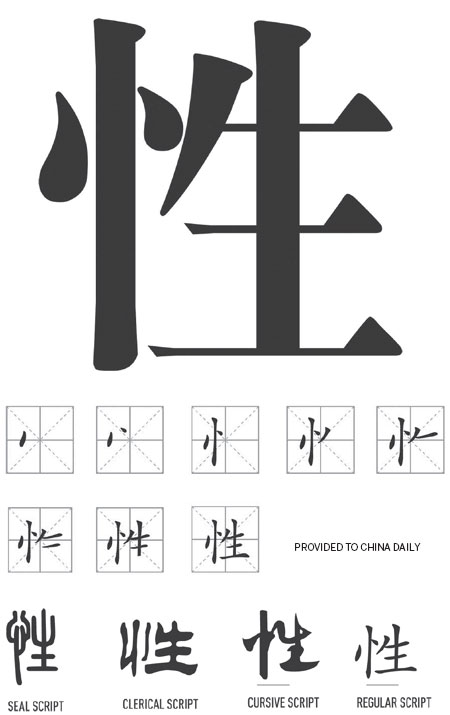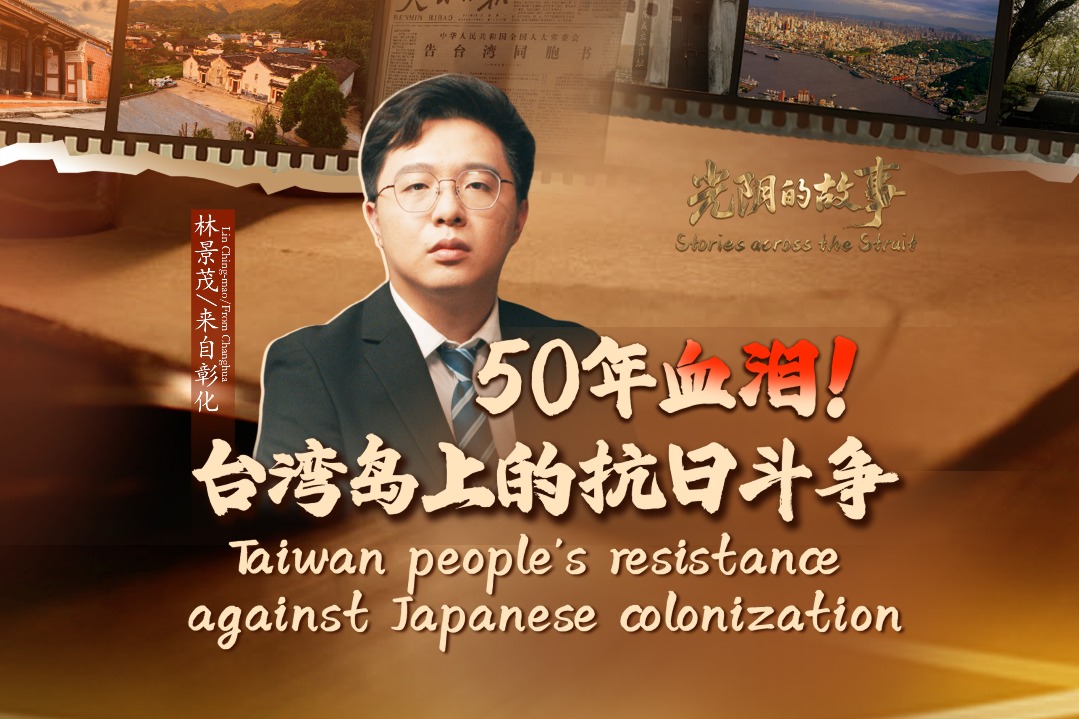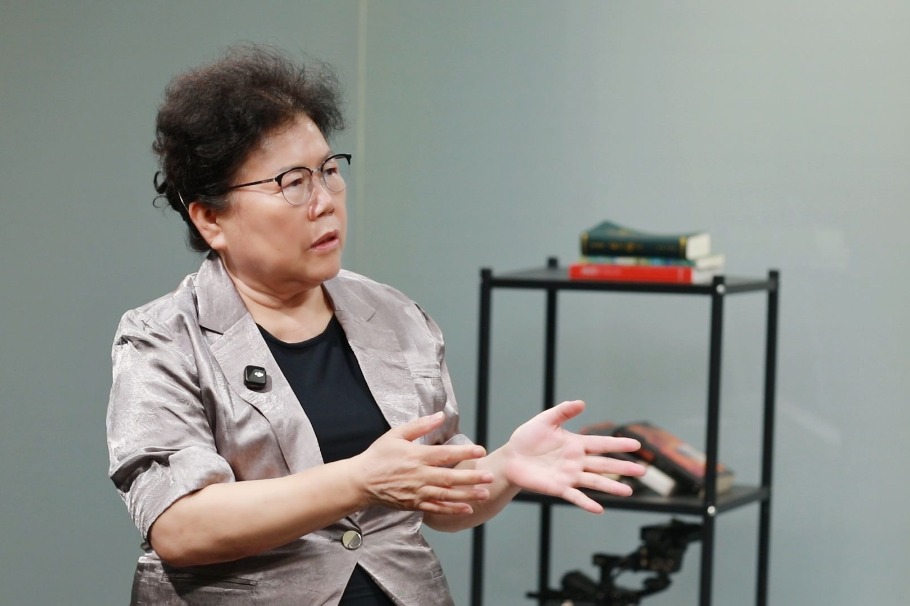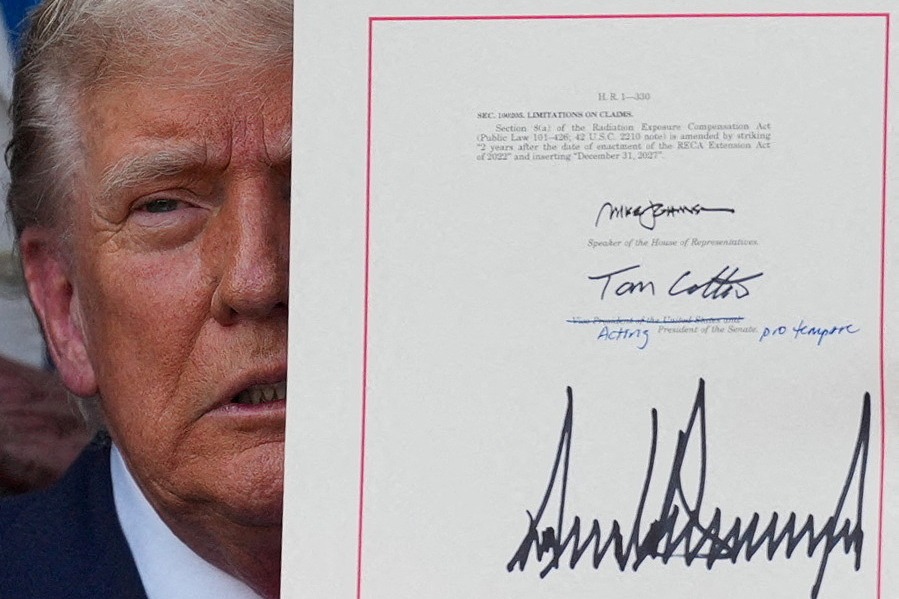Sex and life in a word

The original meaning of the modern taboo 说字解"性", 揭开"性"字的神秘面纱
Warning: saying this character aloud may induce heart attacks in middle-aged ladies, provoke creepy stares from odd men or cause severe giggling in teenagers.
When it comes to the Chinese word for sex, or 性 (xìng), avoid it in daily speech like you are a proper "sir" from the Victoria era. At least, this is the status quo in many parts of the country where speaking directly about sex is still taboo. Some firmly believe that, in Chinese tradition, sex is a low-class, vulgar subject that should never be mentioned. Others simply feel ashamed and regard it as something that should be kept private. Well, those defenders of decency might be disappointed to learn the original meaning and history of 性.
On the left of 性, the "heart" radical (忄) signifies the character's meaning while the right part 生(shēng) denotes pronunciation. But, as is often the case, the phonetic radical no longer stands for the exact pronunciation of the character due to the evolution of language. Originally, 性 meant the innate properties of one's heart, the inalienable qualities of mankind. "What is endowed from the heavens is named xing, (天命谓之性。Tiānmìng wèi zhī xìng.)" stated the Confucian classic Doctrine of the Mean (《中庸》Zhōng Yōng).
When it comes to human nature, philosophers just cannot resist debating inherent good and evil. "At birth, people are naturally good; their natures are similar, but their later environments and habits make them different from each other." (人之初,性本善;性相近,习相远。 Rén zhī chū, xíng běn shàn; xíng xiāng jìn, xí xiāng yuǎn.) Those are the first few words from the Three-Character Primer (《三字经》Sānzìjīng), an ancient teaching book for children. Mencius was known to support this view.
However, the philosopher, Xunzi, thought that people are ruled by their basic emotions and desires, which is 情 (qíng). "In xing, love and hate, happiness and anger, sorrow and delight are all called qing." (性之好恶、喜怒、哀乐,谓之情。 Xìng zhī hàowù、xǐnǜ、āilè, wèi zhī qíng.) Xunzi believed that these basic instincts exist in everyone and that only through later learning can people conquer their flaws and acquire virtues.
Pick your side in the philosophical debate, but note that, in modern Chinese, 性情 (xìngqíng) is actually one word, meaning "temperament or disposition". Besides sex, 性 represents a wide range of meanings in different words, from "life" (性命 xìngmìng) to "property" (性能 xìngnéng).
This first group of words is close to the word's original meaning: 性格 (xìnggé) means one's character; 天性 (tiānxìng) means natural instincts; 个性 (gèxāng) means personality; and 性子 (xìngzi) means temper, such as hot temper (急性子 jíxìngzi) or spitfire (烈性子 lièxìngzi).
Beginning as an expression of characteristics and properties, the meaning of 性 expanded to various words such as 酸性 (suānxìng, acidity), 弹性 (tánxìng, elasticity), and 毒性 (dúxìng, toxicity). 感性 (gǎnxìng) refers to people's ability to perceive the world, while 理性 (lǐxìng) refers to the ability to reason and draw rational conclusions. Add 性 at the end of certain nouns, verbs and adjectives, and you will end up with an even wider range of abstract nouns, explaining properties and traits, such as 全国性 (quánguóxìng, nationwide), 创造性 (chuàngzàoxìng, creativity) and 普遍性 (pǔbiànxìng, universality).
Obviously, 性 also means gender, as in 性别 (xìngbié), 男性 (nánxìng, man or male) and 女性 (nǚ xìng, woman or female) are used for people. For animals, apply 雄性 (xióngxìng) and 雌性 (cíxìng) instead. Heterosexuality is 异性恋 (yìxìnglàn) and homosexuality is 同性恋 (tóngxìngliàn).
When it comes to the specific meaning of 性, or sex, that causes so much embarrassment, a famous quote from the book Mencius should cause people to take pride in this base natural state: "Having food and sex are both human nature." (食、色,性也。Shí、sè, xìng yě. ) From human nature to the modern taboo, we can only hope that social perception of this simple character changes in the future. Sex, after all, serves as the motor of human history.
Courtesy of The World of Chinese,
www.theworldofchinese.com
The World of Chinese

(China Daily Africa Weekly 11/29/2013 page27)
Today's Top News
- New market entity data show vitality
- Autumn recruitment race for AI talent heats up
- Beijing's initiative promotes global AI governance
- Chengdu games hailed as the new benchmark
- Xi, Lula pledge to deepen China-Brazil cooperation
- China, US extend tariff suspension for 90 days






























